Ecotourism: The Positive Impact of Safari Tours on Conservation in Africa
Witnessing Africa’s breathtaking wildlife in its natural habitat is an experience that many dream of. It offers the chance to see giraffes greedily munching on the leaves and twigs of Acacia trees, spot birds so magnificent they look like they’re from a fantasy movie or maybe even catch a glimpse of the latest generation of the critically endangered black rhino.
It’s an adventure full of excitement, thrill and so much intrigue. However, under the surface of this once-in-a-lifetime wilderness experience lies an important question:
What is the Impact of Safari Tours on Conservation in Africa?
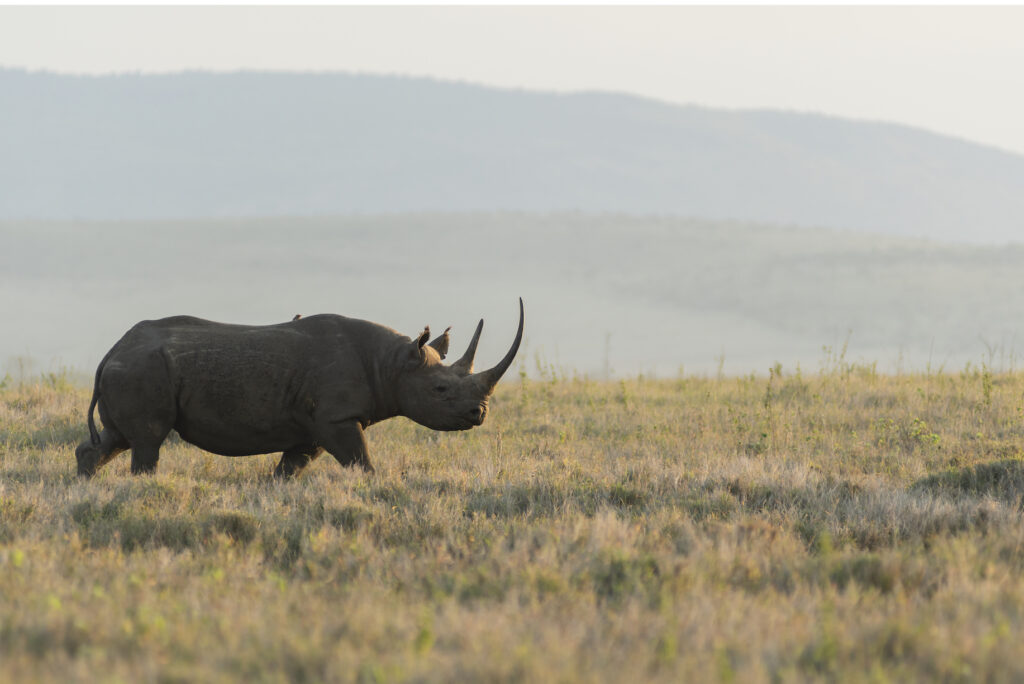
This vast continent is home to all kinds of spectacular nature and wildlife. Full of landscapes so precious they must be taken care of no matter what. So, when you’re planning a safari in Africa, it’s hugely important to consider how your experience can contribute towards conservation rather than degradation. Together we can make sure future generations, including our grandkids, have the opportunity to enjoy the beauty of Africa too.
Let’s take a look at the role of ecotourism and how it can help animal and wildlife conservation in Africa. I’m going to share the benefits of choosing safaris that care about conservation, support local communities, protect biodiversity and provide environmental education.
Do Safari Tours Have a Positive Impact on Conservation in Africa?
Yes, safari tours in Africa are not only about thrilling encounters with wildlife, although this experience is nothing short of incredible. They also play an enormous role in conservation efforts.
Blending tourism with the protection of nature is a great way to enjoy Africa’s wildlife in a sustainable and ethical way. But how exactly do these tours contribute to conservation, and why are they the right choice for the environmentally conscious traveller?
How Safari Tours Help to Protect the Environment
Safari tours, when done responsibly, can offer incredible benefits to conservation efforts and the environment. Let’s take a look at some of the ways in which they protect the African landscape and all the wildlife that lives on it.
Positive impacts of safari tourism on conservation in Africa:
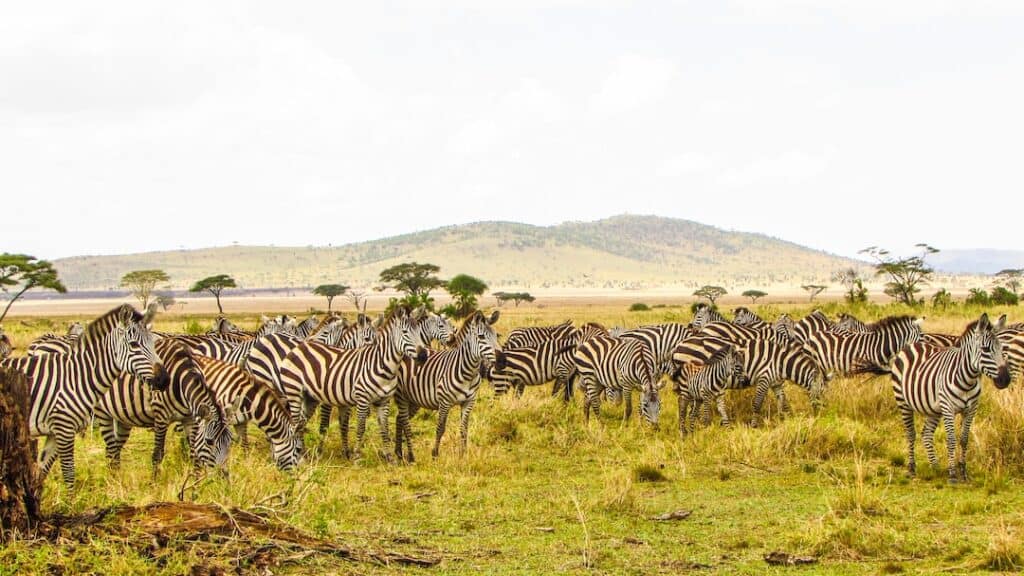
Funding for Conservation:
Safari tours bring in revenue that can be put back into conservation projects. Some of these projects include protecting endangered species, funding anti-poaching efforts, and maintaining natural habitats.
In the 1960s, Kenya was home to around 20,000 black rhinos, but because of poaching, by the 1980s their numbers had dramatically fallen to less than 300. Since then, a huge amount of effort has been put into protecting this animal. Now there’s a glimmer of hope, with over 1,000 black rhinos calling Kenya home again. It’s great progress, yet they’re still critically endangered.
It’s a similar situation with Grevy’s zebras. In the 1970’s there were over 15,000 running wild but thanks to hunting and poaching, their numbers plummeted, now, we’re down to just a little over 3,000.
To protect black rhinos, Grevy’s zebras and other endangered species, funding is essential. Finance can help support work with local communities, enable the protection of the animals with anti-poaching teams and contribute towards the conservation of their habitats. Revenue from safaris plays an important role in this.
Education and Economic Support for Local Communities:
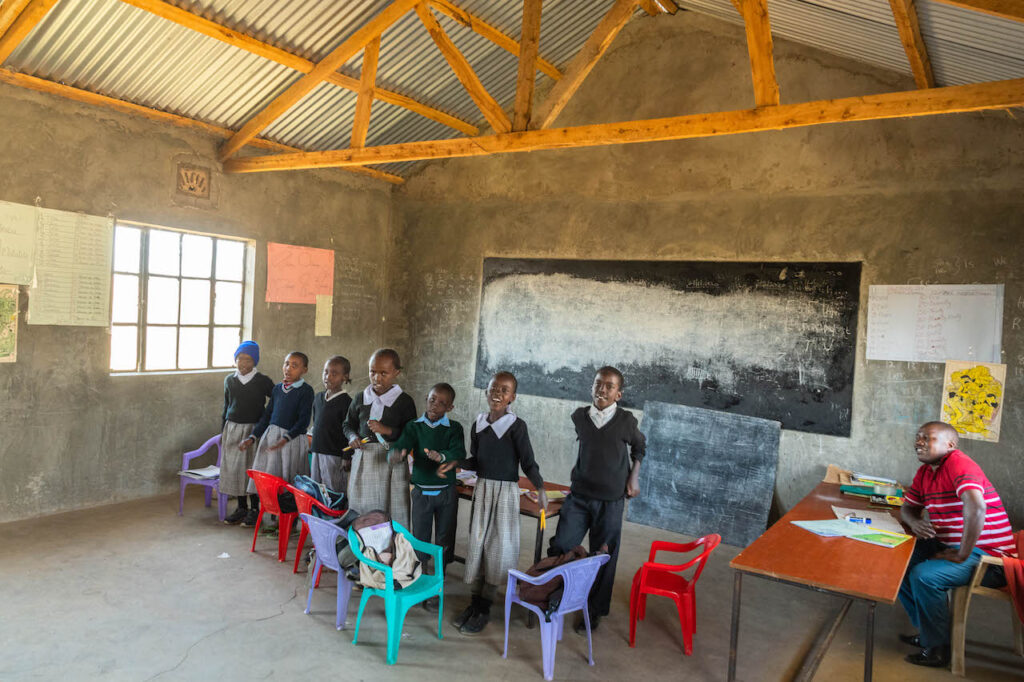
Safaris can offer support to local communities through education and employment opportunities.
Many safari companies support local education initiatives. Some provide equipment and facilities to local schools, while others financially support individual students through their education. Conservation education is also a popular option among school children. This is where students experience safaris for themselves, in the hope it will create a passion for conservation within them.
Safari tourism and conservation also generate a lot of local employment opportunities such as safari guides, lodge staff, park rangers and so much more, as well as supporting other local businesses.
Education and employment can lead to improved living standards. This can reduce the likelihood of communities turning to poaching or unsustainable land use practices that harm the environment.
Advocacy, Education and Global Awareness:
Safaris are educational experiences that often have the power to turn visitors into advocates for conservation. The impact a visit can have is evident by the fact that countless people have gone to visit conservations in Africa, fallen in love and decided to start a life there, myself included.
Advocacy helps increase awareness of conservation issues and the importance of protecting natural habitats and wildlife. This awareness leads to both more visitors and more donations from individuals and businesses.
Education and awareness create a greater appreciation for biodiversity and promote more sustainable behaviours among visitors. This leads to a change in mindset towards how we look after our precious natural habitats all around the world.
Expand Protected Areas:
Income from safari tours helps support the maintenance and expansion of protected areas, such as national parks and wildlife reserves.
The Enarau Conservancy within Mara North Conservancy in Kenya is a great example. It was established to expand wildlife conservation areas, restore degraded farmland, and protect existing vegetation and critically threatened habitats.
A wildlife corridor is being built to connect Enarau to the Maasai Mara National Reserve. This adds another 1,000 acres to the conservation, including a plot of leased farmland that had been used for intensive agriculture for more than two decades. The communities in the Maasai Mara also benefit from the expansion of protected areas because it brings more job opportunities to the area.
Expansion of these areas is needed to help preserve biodiversity and provide a safe place for endangered species as they hopefully continue to grow in numbers. To keep a natural balance it’s essential to provide enough land for the animals to live there in a natural way. When wild animals follow their instinctive behaviour they have a better chance to thrive as a species.
Research Funding:
Research is one of the most important parts of conservation and it costs a lot more than people might think. With the right research, it’s possible to understand the health of an ecosystem, discover any threats and develop strategies to overcome potential risks. Without research teams, many issues would not be noticed until it’s too late. This is especially important when trying to understand the predator-prey ratio within an area.
Research doesn’t just help conservation by studying wildlife behaviours and patterns. Many other things need to be understood to help conservation areas thrive. One of the major hurdles in Sub-Saharan Africa, and especially in Kenya, is managing water resources. Kenya faces water scarcity due to its limited supply of fresh water. This makes access to clean water tough for both wildlife and communities. Thanks to funding, there’s now a Hydrological Monitoring and Evaluation Initiative in place. This program aims to get a clearer picture of water resources in the area, pinpoint the risks they face, and create strategies for managing these resources effectively to secure their future.
Promoting Sustainable Practices:
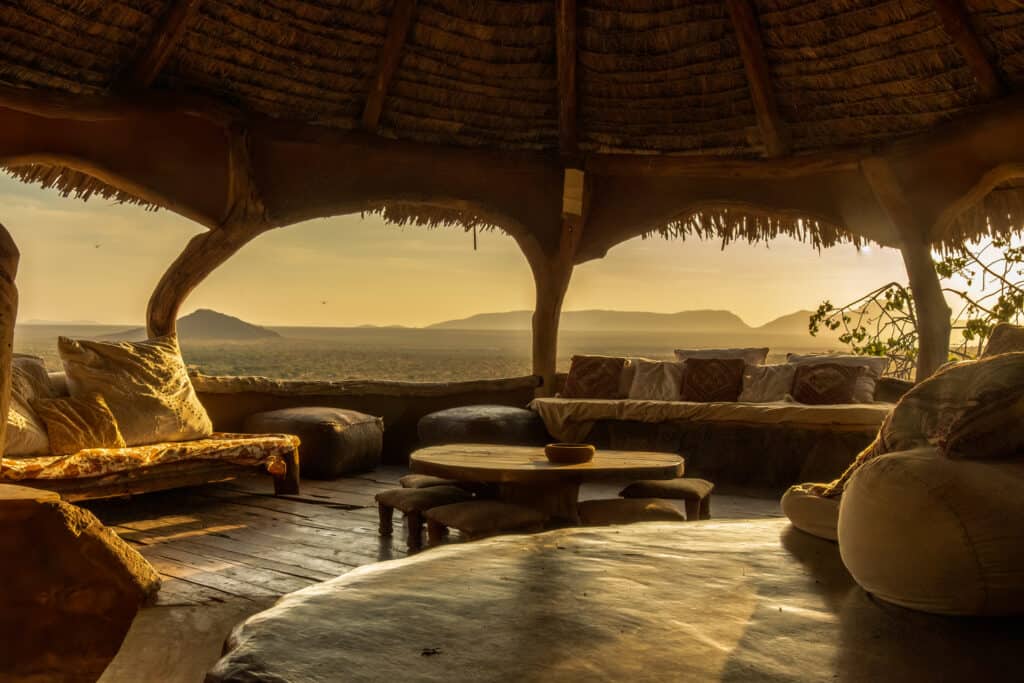
As safari tourism’s popularity grows, responsible safari operators are adopting more sustainable practices. They’re upgrading to eco-friendly accommodations that embrace green initiatives. These initiatives include solar-powered electricity, plastic-free environments using alternatives like bamboo fibre, and implementing rainwater harvesting systems to use within the complex.
Innovations like water filtration systems reduce the need for bottled water, while construction with natural materials and environmentally-friendly water waste sewage plants minimises environmental impact.
Eco-conscious lodges often support local community and conservation efforts by making a donation for each guest or planting a tree for every overnight stay.
The move towards sustainability extends to the dining experience too by offering guests farm-to-table meals, sourced from onsite gardens. Many properties have also invested in energy-saving measures like efficient air conditioning, LED lighting, and timers for water heaters.
Visitor numbers are carefully managed to lessen the footprint, and eco-friendly vehicles are chosen to protect the surroundings. These improvements reflect a significant shift towards more responsible and sustainable safari experiences.
Habitat Restoration and Wildlife Rehabilitation:
Some safari operations participate in habitat restoration projects and wildlife rehabilitation. With many thousands of animal and plant species in Africa at risk of extinction, restoration projects are hugely important.
These projects help to restore ecosystems that have been degraded because of agriculture and deforestation and allow the return of wild animals.
Climate Change Mitigation:
Funding from safari tourism contributes indirectly to climate change mitigation by protecting and restoring forests and other natural habitats.
Climate change is a huge concern worldwide and this is especially true in Africa. Global warming is increasing and causing disturbance to natural habitats. Through the conservation of carbon sinks, which absorb CO2 from the atmosphere, there’s hope to slow down the negative effects of climate change.
Safari tours have a unique position in helping people understand the importance of the environment and the need to protect it. By offering a tangible experience of wildlife and natural landscapes, tourists develop a deeper appreciation and respect for nature.
How Does Tourism Negatively Affect the Environment in Africa?
As mentioned, tourism has the potential to positively impact the environment in Africa. It can encourage a conservation culture among both locals and tourists. It’s clear to see that the positives outweigh the negatives by all the incredible things that have already been achieved by conservation initiatives.
Responsible tourism has benefited many cultures and communities around the world, not just in Africa. However, it’s essential to acknowledge the possible harmful effects of tourism on conservation efforts. Not all safari operators contribute positively to the cause. This is why it’s so important to choose the right companies to support.
Potential drawbacks exist, primarily when profit motives overshadow conservation goals. Habitat disturbance is a common issue. This comes from an excessive number of vehicles and tourists, coupled with irresponsible off-road driving, leading to soil erosion and damage to vegetation. This, in turn, disrupts the lives of local wildlife, causing stress and altering their natural behaviours. This can affect their feeding, mating, and migration patterns, ultimately impacting their reproduction and survival.
As well as overcrowding at popular safari spots, pollution from vehicle emissions, litter, and noise all add to the negatives that can come from tourism. The commercialisation of safari experiences, such as guaranteed animal sightings, can interfere with their behaviours and upset the natural balance.
Another issue is the uneven distribution of safari profits. Some companies fail to reinvest in conservation, which threatens the collective efforts for preservation and improvement.
Conflicts with local communities over land and resources can also arise, hindering conservation efforts. Communities that feel unfairly treated may develop negative attitudes towards conservation initiatives and protected areas.
Selecting the right safari company is an important decision for tourists. It’s about supporting those who prioritise environmental preservation over profit, ensuring that safari tourism remains a force for conservation.
Does Safari Tourism Help or Hinder Conservation?
When managed responsibly, tourism massively helps conservation efforts. The income from tourism supports the maintenance and extension of protected areas and national parks. However, it is incredibly important that when you choose your safari company you select a company that puts conservation first.
How to Select a Responsible Safari Tour
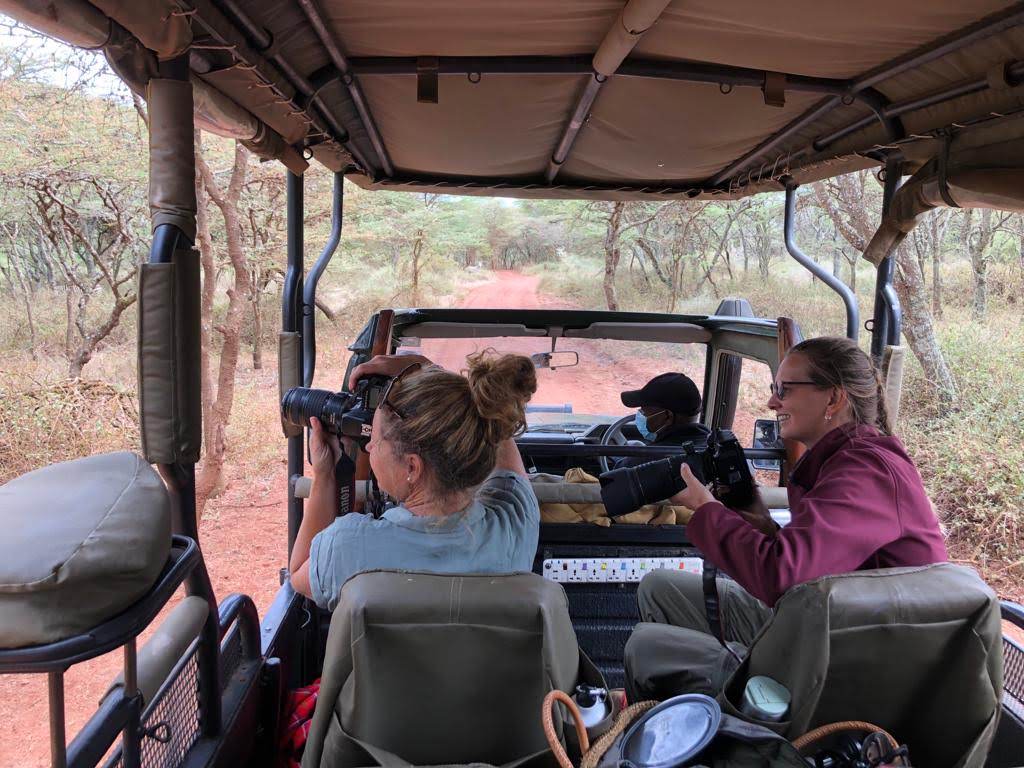
Choosing an eco-conscious tour operator is extremely important when it comes to ensuring your safari adventure supports conservation efforts. Look for certifications and sustainability credentials, such as those from recognised environmental organisations.
If you’re not sure where to start or how to find a safari company that really cares, book a call with me here. I can talk you through all you need to know.
Is Going on Safari Ethical?
How ethical a safari company is or isn’t is a slightly different question. I’ll cover this in more detail in another article soon. In short, providing everything is done with respect for the wildlife, and that profits don’t fund any unethical organisations, going on a safari can be ethical.
Make sure to carry out plenty of research when booking a safari tour to ensure the animals’ best interests at all times. Ethical safaris emphasise viewing animals without disturbing them. They stick to certain routes to prevent habitat damage and contribute to local conservation efforts.
Generally, you’ll find safari companies that are focused on conservation also care about following ethical practices.
How Tourists Can Contribute to Conservation Efforts
Tourists can play a significant role in conservation by following guidelines designed to protect the environment and wildlife. This includes respecting wildlife viewing distances, avoiding single-use plastics, and supporting local conservation initiatives through donations or volunteering. Visitors can also share their experiences with others to help educate people on the importance of conservation while visiting African safaris.
Conclusion – Yes, Safari Tours Have a Positive Impact on Conservation in Africa
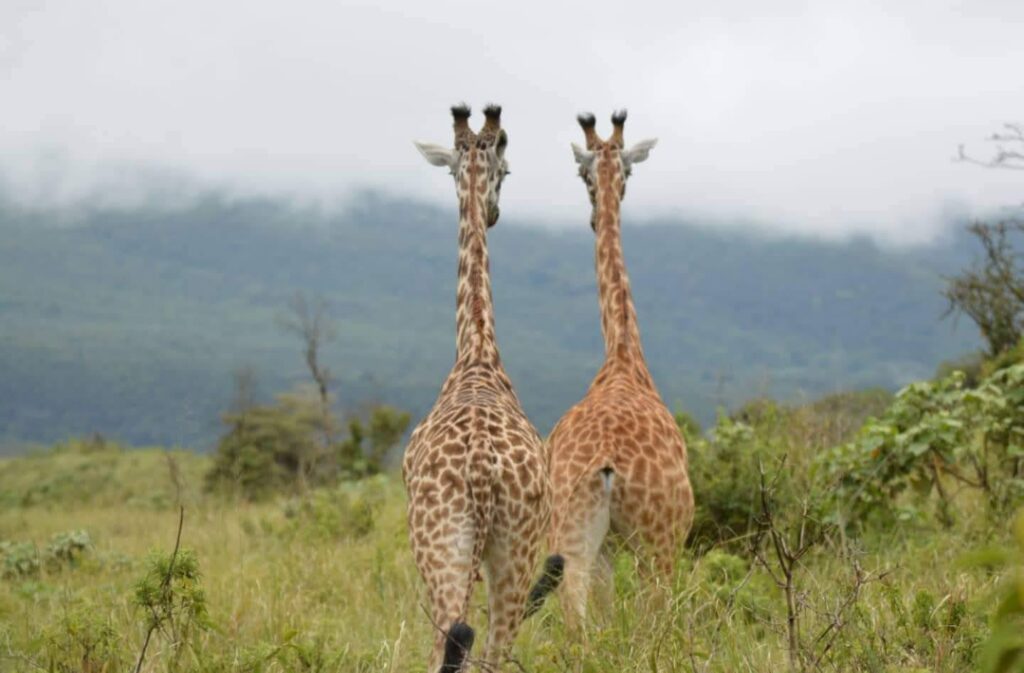
The impact of safari tours on conservation in Africa is huge. Not only do they provide incredibly important funding for conservation projects, but they also play a big role in educating tourists about the value of preserving natural habitats and wildlife.
By going on safari and selecting a responsible safari company, tourists can feel good that they are helping to conserve Africa’s breathtaking biodiversity. If done responsibly, safari tours are not just journeys into the wild but a pathway to sustaining the very beauty within them.
There’s so much to think about when planning an African Safari, let me help you get started. Just answer a few questions in the safari planning quiz below and I’ll create a personalised safari itinerary just for you.

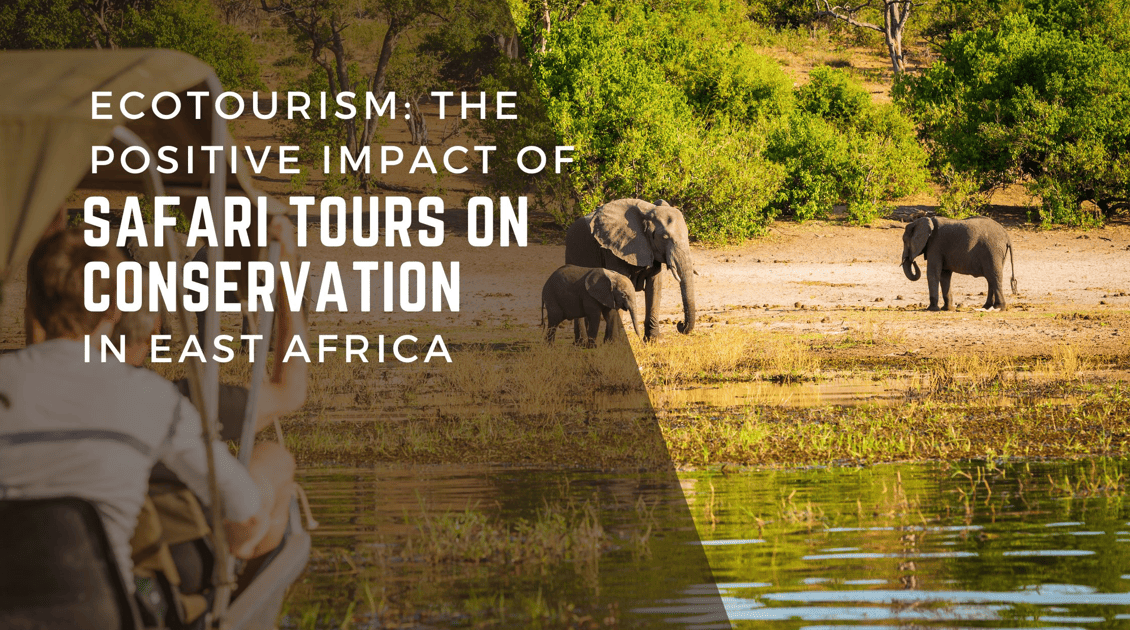

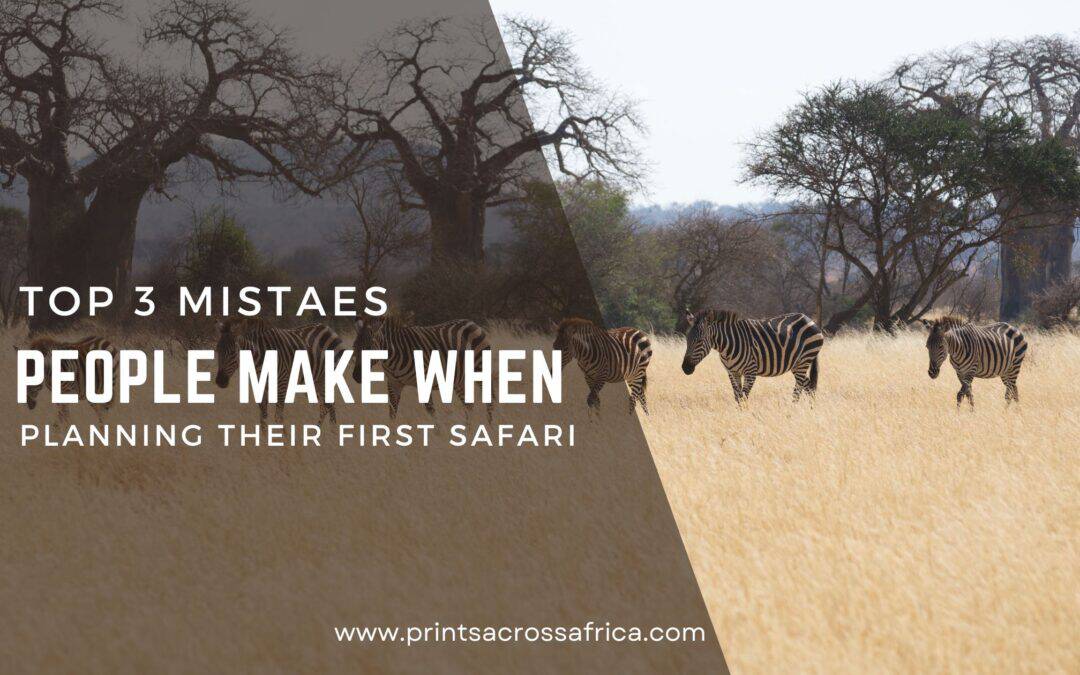
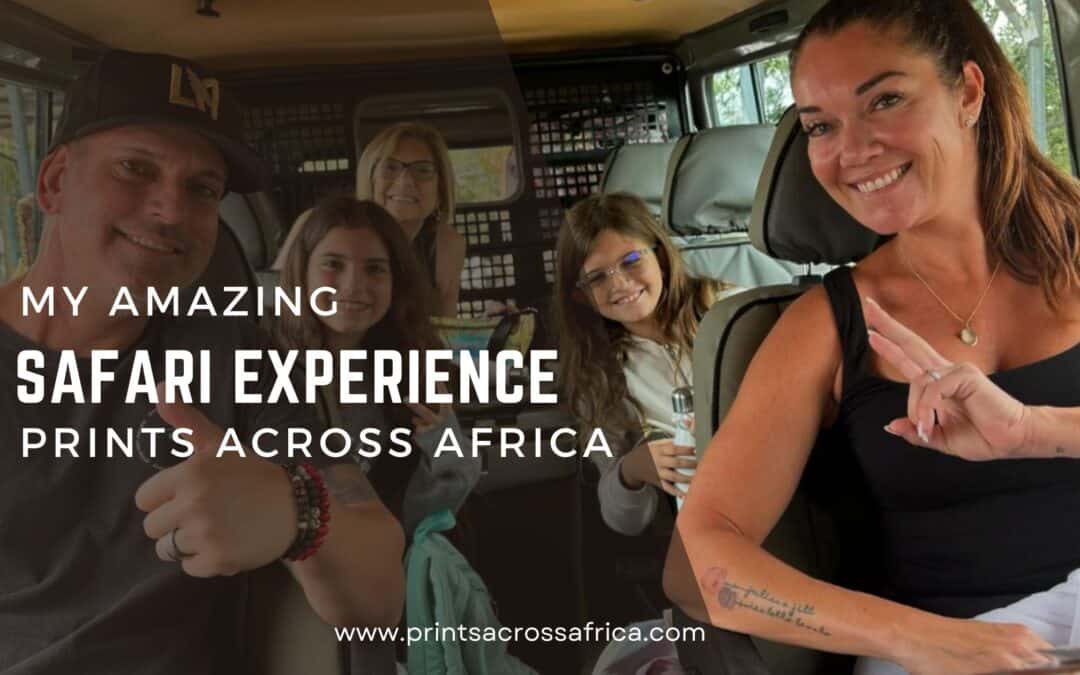





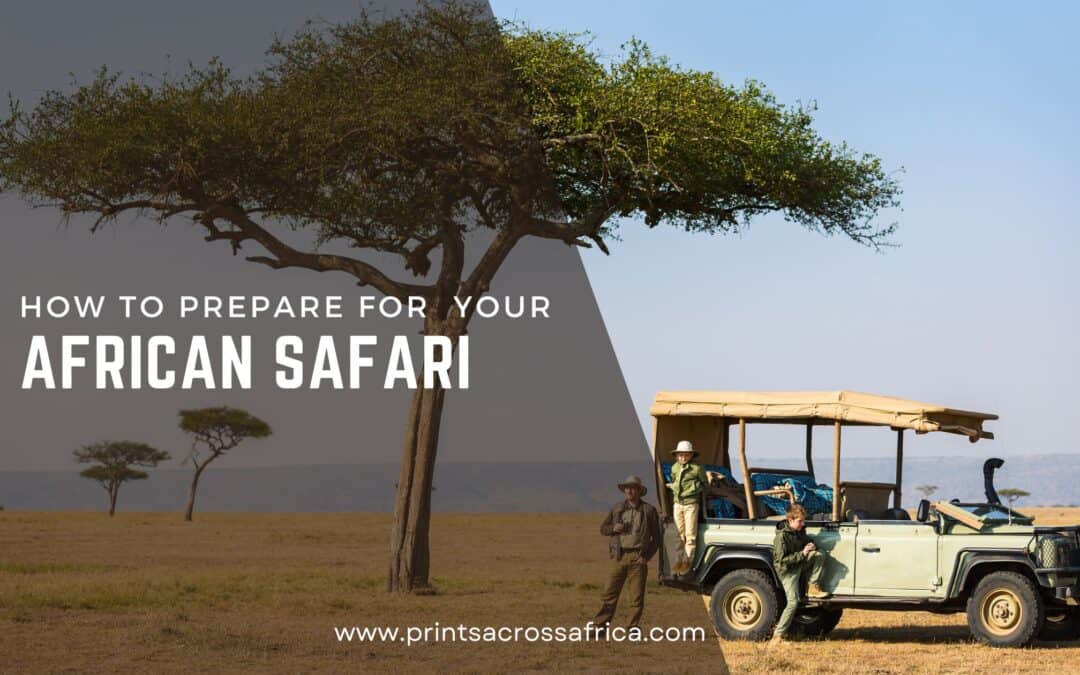

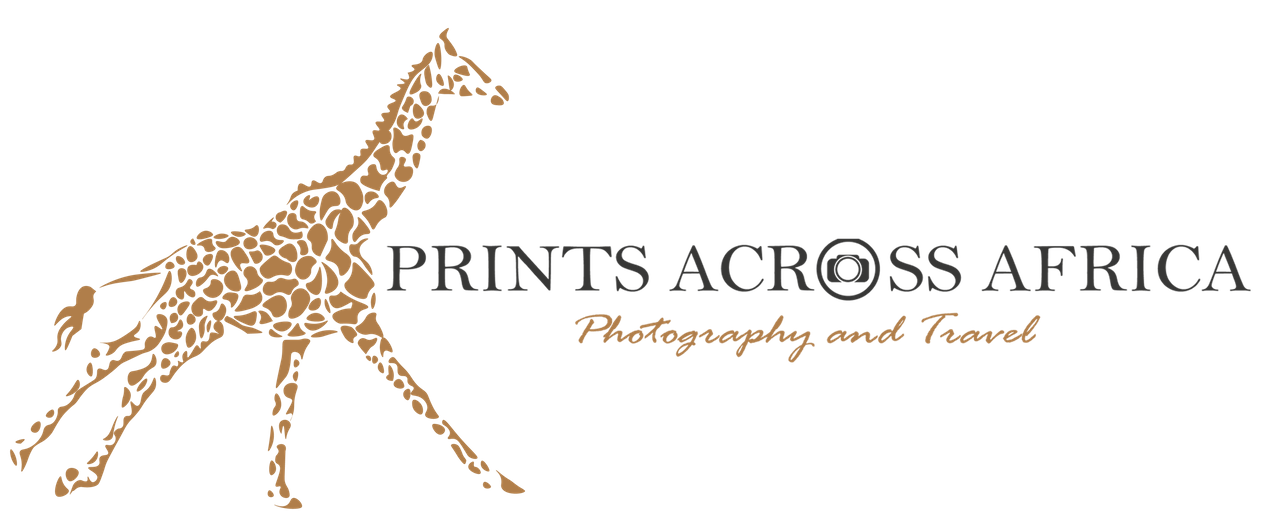
0 Comments